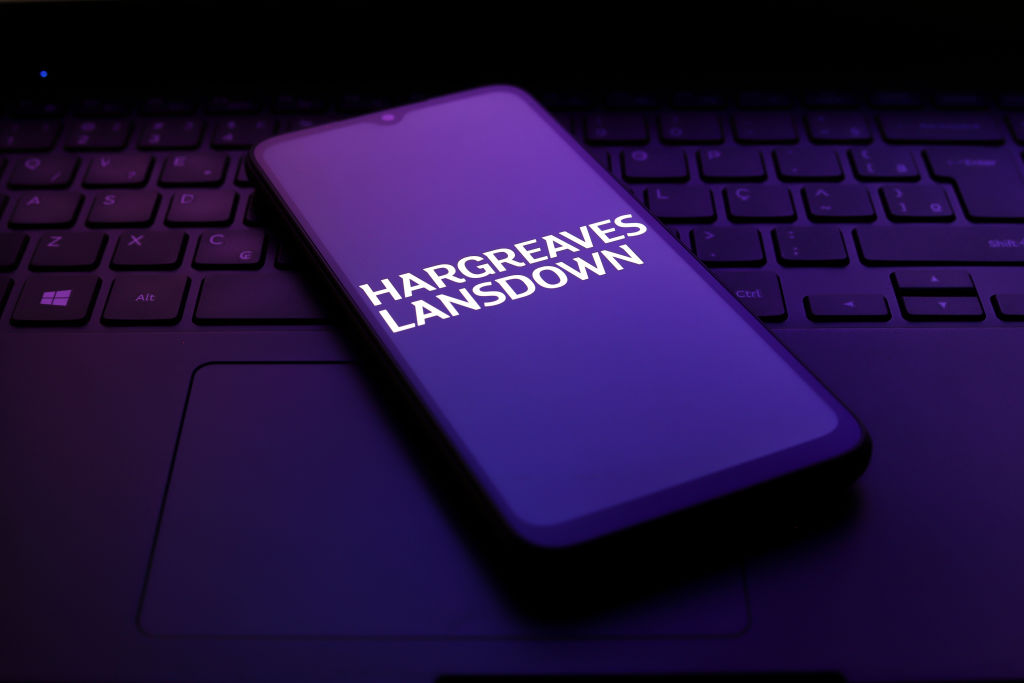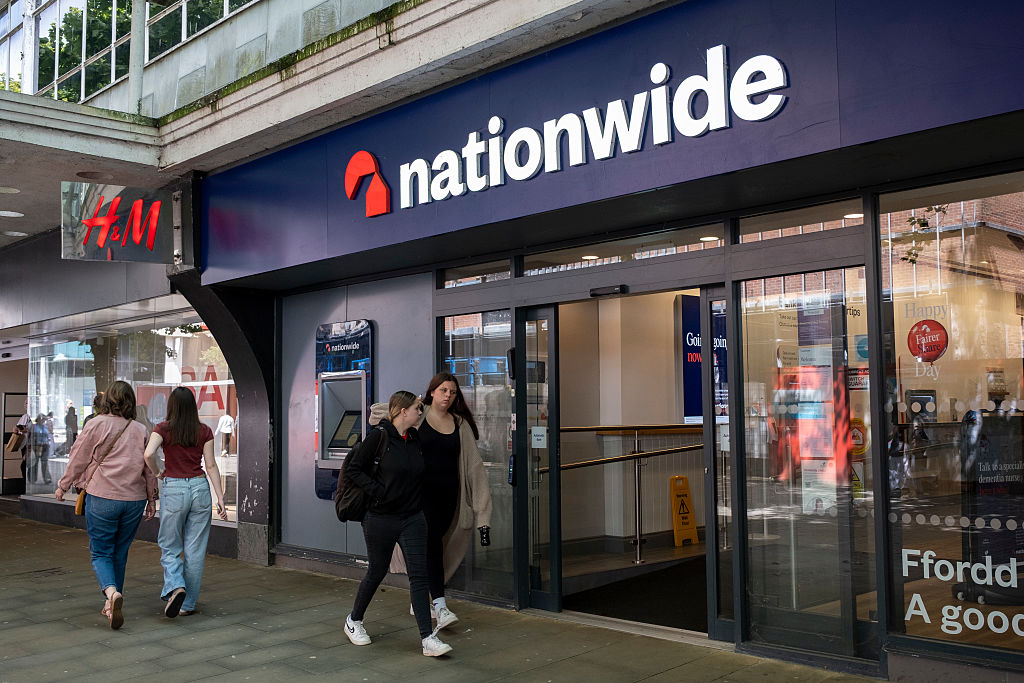Best savings rates – earn as much as 4.5%
The best savings rates on the market pay up to 4.5% on your cash – but you will need to act fast before these top-paying accounts disappear


Get the latest financial news, insights and expert analysis from our award-winning MoneyWeek team, to help you understand what really matters when it comes to your finances.
You are now subscribed
Your newsletter sign-up was successful
Want to add more newsletters?

Twice daily
MoneyWeek
Get the latest financial news, insights and expert analysis from our award-winning MoneyWeek team, to help you understand what really matters when it comes to your finances.

Four times a week
Look After My Bills
Sign up to our free money-saving newsletter, filled with the latest news and expert advice to help you find the best tips and deals for managing your bills. Start saving today!
If you're looking for the best savings rates, you can earn as much as 4.5% with the top easy-access account, 4.4% with a one-year fixed bond or 7.5% with a top regular saver.
While savings rates are lower than they were a few years ago, you can still find inflation-beating deals on the market and make your money work hard for you.
You shouldn’t judge a savings account solely by its top rate, but rather check whether it fulfils your needs – both short-term and in the long run. This includes looking at whether there are any restrictions on withdrawals or bonus rates which could mean the rate quickly drops when the boost comes to an end.
MoneyWeek
Subscribe to MoneyWeek today and get your first six magazine issues absolutely FREE

Sign up to Money Morning
Don't miss the latest investment and personal finances news, market analysis, plus money-saving tips with our free twice-daily newsletter
Don't miss the latest investment and personal finances news, market analysis, plus money-saving tips with our free twice-daily newsletter
With the Bank of England’s interest rate cut in December, top savings deals have been tumbling, so if you want to get a competitive rate, you may need to act quickly.
Below, we look at the top rates for notice savings, easy-access savings, fixed bonds, regular savings and cash ISAs.
Note:
All the banks we mention in this article are protected by the Financial Services Compensation Scheme, meaning up to £120,000 of your savings are protected should a bank or other financial services company go out of business.
Best notice savings rates
Account | AER | Minimum deposit | Notes |
|---|---|---|---|
4.5% | £1 | Save up to £3 million. Open online | |
4.5% | £10,000 | Save up to £500,000. Open online or in person. | |
4.38% | £1,000 | Save up to £500,000. Open online | |
4.33% | £1,000 | Save up to £100,000. Open online |
The best easy-access savings rates
Account | AER | Minimum deposit | Notes |
|---|---|---|---|
4.5% | £0 | Save up to £3 million. Open online | |
4.25% | £1 | Save up to £400,000. Open in person or via post. | |
4.23% | £10,000 | No maximum limit. Open online | |
4.15% | £1 | Save up to £1 million. Open online or in person. |
Best regular savings accounts
Account | AER | Minimum deposit | Notes |
|---|---|---|---|
7.5% | £1 | Save up to £200 per month. Open online or in person. | |
7.1% | £0 | Save up to £300 per month. Open online. | |
7% | £25 | Save up to £300 per month. Open online. | |
7% | £1 | Save up to £250 per month. Open online or in person. |
The best one-year fixed rates
Account | AER | Min. opening deposit | Notes |
|---|---|---|---|
4.4% | £1,000 | Save up to £120,000. Open online | |
4.35% | £1,000 | Save up to £120,000. Open online | |
4.32% | £5,000 | Save up to £1 million. Open online | |
4.24% | £1,000 | Save up to £1 million. Open online |
The best two-year fixed rates
Account | AER | Min. opening deposit | Notes |
|---|---|---|---|
4.2% | £1,000 | Save up to £120,000. Open online | |
4.18% | £5,000 | Save up to £250,000. Open online | |
4.17% | £1,000 | No maximum limit. Open online | |
4.17% | £1,000 | Save up to £1 million. Open online |
The best three-year fixed rates
Account | AER | Min. opening deposit | Notes |
|---|---|---|---|
4.22% | £1,000 | Save up to £120,000. Open online | |
4.18% | £10,000 | Save up to £2 million. Open online | |
4.18% | £1,000 | Save up to £1 million. Open online | |
4.17% | £5,000 | Save up to £250,000. Open online |
The best easy-access cash ISAs
Account | AER | Min. opening deposit | Flexible ISA? | Notes |
|---|---|---|---|---|
4.39% | £500 | No | Open online | |
4.36% | £1 | No | Open online | |
4.25% | £0 | No | Open online |
The best one-year fixed rate cash ISAs
Account | AER | Min. opening deposit | Notes |
|---|---|---|---|
4.35% | £1,000 | Open online | |
4.2% | £1,000 | Open online | |
4.16% | £500 | Open online |
The best two-year fixed rate cash ISAs
Account | AER | Min. opening deposit | Notes |
|---|---|---|---|
4.15% | £1,000 | Open online | |
4.1% | £10,000 | Open online | |
4.1% | £500 | Open online |
The best three-year fixed rate cash ISAs
Account | AER | Minimum investment | Notes |
|---|---|---|---|
4.15% | £500 | Open online | |
4.07% | £10,000 | Open online | |
4.05% | £1,000 | Open online |
Types of savings accounts
There are several different types of savings accounts to choose from.
- Easy access savings accounts: These allow you to take your money out as and when you please. However, some come with restrictions on withdrawals, which can mean you can’t immediately access all of your money in the account in an emergency. For instance, you may only make same-day withdrawals if done before a particular timeframe, or you may only be permitted a limited number of withdrawals before the rate on your account drops.
- Fixed-rate savings accounts: These come with restrictions, so you can’t access your cash until the account reaches maturity; otherwise, you may face a hefty penalty. You usually earn more interest if you are willing to lock your cash away for a fixed period, but keep in mind that this also takes away flexibility should you need the cash suddenly.
- Regular savings accounts: Regular savers reward customers who are ready to commit to a consistent savings habit. These are usually the top-paying savings rates in the market, but can also come with withdrawal restrictions and are usually fixed for a certain time. We look at whether easy access or regular savings accounts give you the best return in a separate piece.
- Individual savings accounts (ISAs): These are a type of ‘tax wrapper’ into which you can put cash or investments. Currently, you have a £20,000 limit on how much you can set aside into an ISA.
If you aren’t saving in this type of account, you could be forced to pay tax on interest. We look at ways to shelter your money from the savings tax trap.
If you’re looking to switch your current account, take a look at our guide to the best bank switching offers, where you can earn as much as £750.
What is the maximum amount protected by the Financial Services Compensation Scheme (FSCS) in the UK?
The Financial Services Compensation Scheme (FSCS) protects up to £120,000 of your savings and investments if a financial institution goes bust.
Previously, the limit was £85,000 for sole accounts and £170,000 for joint accounts, but it was raised to £120,000 and £240,000 respectively in December 2025.
All accounts listed above are eligible for FSCS protection. You can check if your account is protected online on the FSCS website.
What is the current Bank of England base rate?
The current Bank of England base rate is 3.75%. Interest rates were cut in December 2025, to the lowest level in nearly three years.
The central bank’s Monetary Policy Committee meets eight times a year to set rates, which have been falling gradually since August 2024. Many analysts project rates to continue falling in 2026, though at a slower pace.
The decision from the next Bank of England base rate meeting will be announced on 5 February 2026.
This article is updated regularly to bring you the latest on the best savings rates. Sign up for our newsletter to stay up-to-date on all the latest deals for cash savings.
Get the latest financial news, insights and expert analysis from our award-winning MoneyWeek team, to help you understand what really matters when it comes to your finances.

Oojal has a background in consumer journalism and is interested in helping people make the most of their money.
Oojal has an MA in international journalism from Cardiff University, and before joining MoneyWeek, she worked for Look After My Bills, a personal finance website, where she covered guides on household bills and money-saving deals.
Her bylines can be found on Newsquest, Voice.Cymru, DIVA and Sony Music, and she has explored subjects ranging from politics and LGBTQIA+ issues to food and entertainment.
Outside of work, Oojal enjoys travelling, going to the movies and learning Spanish with a little green owl.
-
 Average UK house price reaches £300,000 for first time, Halifax says
Average UK house price reaches £300,000 for first time, Halifax saysWhile the average house price has topped £300k, regional disparities still remain, Halifax finds.
-
 Barings Emerging Europe trust bounces back from Russia woes
Barings Emerging Europe trust bounces back from Russia woesBarings Emerging Europe trust has added the Middle East and Africa to its mandate, delivering a strong recovery, says Max King
-
 Nationwide promises to protect all its branches from closures until at least 2030
Nationwide promises to protect all its branches from closures until at least 2030The building society has extended its pledge to keep all high street Nationwide and Virgin Money branches open, now until at least 2030.
-
 Brits leave £31.6 billion in savings accounts paying 1% interest or less – do you need to switch?
Brits leave £31.6 billion in savings accounts paying 1% interest or less – do you need to switch?Eight million Brits hold money in savings accounts that pay 1% interest or less, meaning the value of their cash is being eroded by inflation.
-
 Buying vs renting: is is better to own or rent your home?
Buying vs renting: is is better to own or rent your home?The higher mortgage rates of recent years have actually made renting comparatively cheaper, analysis suggests. But there are hidden costs to long term renting.
-
 Hargreaves Lansdown launches first cash ISA – how does it compare?
Hargreaves Lansdown launches first cash ISA – how does it compare?Hargreaves Lansdown is offering an own brand cash ISA for the first time with their new easy-access account. How does the interest rate compare to other products?
-
 Is Britain heading for a big debt crisis?
Is Britain heading for a big debt crisis?Opinion Things are not yet as bad as some reports have claimed. But they sure aren’t rosy either, says Julian Jessop
-
 Nationwide Building Society launches £175 switching deal – who is eligible?
Nationwide Building Society launches £175 switching deal – who is eligible?Nationwide Building Society has launched a new current account switching deal. We look at whether you are eligible, and how to get the free cash.
-
 Green mortgages: how do they work and how much can you save?
Green mortgages: how do they work and how much can you save?Most high-street lenders now offer some kind of green mortgage deal. We look at who’s eligible, how to apply and the mortgage rates and cashback on offer
-
 ‘My NS&I one-year British Savings Bond is maturing – what should I do with my savings?
‘My NS&I one-year British Savings Bond is maturing – what should I do with my savings?Thousands of savers will see their fixed-rate savings accounts mature next month. We consider whether you should stick with NS&I or move to a competitor